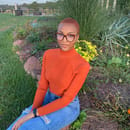From a very young age, I had been attending predominantly black public schools, I even went to a preschool that catered to teaching children things such as African drumming and dance, and Afrocentric principles. That was until high school when I decided to attend a private boarding school in Georgia. My sister was the one who originally wanted to attend a private school for high school, and I couldn’t care less about where I was attending school until I got accepted. I sat down with my parents to discuss the advantages and disadvantages, and statements that kept coming up were, “ You will get a better education there” or “Imagine how it will look on a college application”. I understood the implications of having a private school education instead of a public school so I decided to attend. While private schools provide better opportunities for many students especially certain minorities they do not help with creating connections with their culture and peers.
At my school like many other private schools, my school was majority white and then the next largest population was Asian. The black population had to be about 30 people in a school of 400, so extremely small. In my graduating class alone, we only had 5 black graduating seniors. While the education was great compared to other schools, I felt that I was swallowed by the lack of representation and restraint on my expression as African American. I felt that if I wanted to fit in and not be outcasted, I needed to behave a certain way and be that token black person, whether that was playing sports or striving in academics. The few black people that attend the schools stayed in tights circles but that still wasn’t enough in my classes I was still the only black kid. That is primarily why I decided to attend an HBCU because I was in an environment that didn’t cater to my needs as an African American.
At private schools, there is a stereotype that only rich people can go there, and this limits the type of people who attend. The schools try to include their minority populations by celebrating black history month, Chinese New Year’s, or even host an International week so that people can show off their cultures. While the attempt at inclusion is nice its masks the issue that minorities are not being represented in everyday school life. It is important not only for the school to represent all of the populations in their establishments but it also allows for every student to be comfortable while achieving an education. Things such as a black student union could be essential in helping to bridge the gaps where students don’t feel comfortable or not included. Private schools need to become more aware that their curriculum has been primarily geared towards one population and needs to change if they want to have different populations within their schools.



